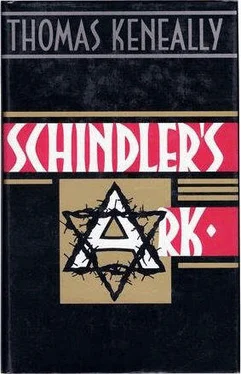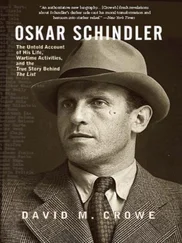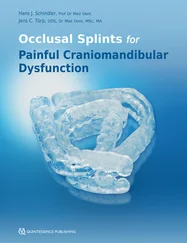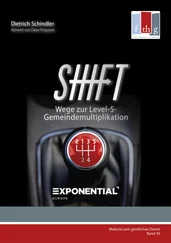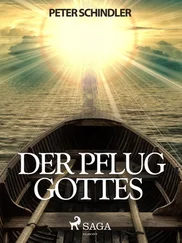The meetings would take place perhaps in the investor’s apartment in the Centrum of Cracow, the old inner city. The Polish landscapists the investor’s wife adored, the French novels his bright and fragile daughters savored would glow in the light of the transaction. Or else the investing gentleman had already been thrown out of his apartment and lived in poorer quarters in Podgórze. And he would be a man already in shock—his apartment gone and himself now an employee in his own business —and all this in a few months, the year not over yet.
At first sight, it seems a heroic embellishment of the story to say that Oskar was never accused of welching on these informal contracts. He would in the new year have a fight with one Jewish retailer over the quantity of product the man was entitled to take from DEF’S loading dock in Lipowa Street. And the gentleman would be critical of Oskar on those grounds to the end of his life. But that Oskar did not fulfill deals— that was never said.
For Oskar was by nature a payer, who somehow gave the impression that he could make limitless repayments out of limitless resources. In any case, Oskar and other German opportunists would make so much in the next four years that only a man consumed by the profit motive would have failed to repay what Oskar’s father would have called a debt of honor.
Emilie Schindler came up to Cracow, to visit her husband there for the first time, in the new year. She thought the city was the most delightful she had ever been in, so much more gracious and pleasant and old-fashioned than Brno with its clouds of industrial smoke.
She was impressed with her husband’s new apartment. The front windows looked across at the Planty, an elegant ring of parkland that ran right around the city following the route of the ancient walls long since knocked down. At the bottom of the street the great fortress of Wawel rose, and amidst all this antiquity was Oskar’s modern apartment. She looked around at Mrs. Pfefferberg’s fabrics and wall hangings. His new success was tangible in them.
“You’ve done very well in Poland,” she said. Oskar knew that she was really talking about the matter of the dowry, the one her father had refused to pay a dozen years back when travelers from Zwittau had rushed into the village of Alt-Molstein with news that his son-in-law was living and loving like an unmarried man. His daughter’s marriage had become exactly the marriage he had feared it would, and he was damned if he’d pay.
And though the absence of the 400,000 RM. had altered Oskar’s prospects a little, the gentleman farmer of Alt-Molstein did not know how the nonpayment would pain his daughter, make her even more defensive, nor that twelve years later, when it no longer counted for Oskar, it would be still at the front of Emilie’s mind.
“My dear,” Oskar was always growling, “I never needed the damn money.”
Emilie’s intermittent relations with Oskar seem to have been those of a woman who knows her husband is not and will not be faithful, but who nonetheless doesn’t want evidence of his affairs thrust under her nose. She must have moved warily in Cracow, going to parties where Oskar’s friends would surely know the truth, would know the names of the other women, the names she did not really want to hear.
One day a young Pole—it was Poldek Pfefferberg, who had nearly shot her husband, but she could not know that—arrived at the door of the apartment with a rolled-up rug over his shoulder. It was a black-market rug from Istanbul via Hungary, and Pfefferberg had been given the job of finding it by Ingrid, who had moved out for the duration of Emilie’s visit.
“Is Frau Schindler in?” asked Pfefferberg. He always referred to Ingrid as Frau Schindler because he thought it was less offensive.
“I am Frau Schindler,” said Emilie, knowing what the question meant.
Pfefferberg showed some sensitivity in covering up. Actually he did not need to see Frau Schindler, though he’d heard so much about her from Herr Schindler. He had to see Herr Schindler about some business matter.
Herr Schindler wasn’t in, said Emilie.
She offered Pfefferberg a drink, but he hastily refused. Emilie knew what that meant too. That the young man was just a little shocked by Oskar’s personal life and thought it indecent to sit and drink with the victim.
The factory Oskar had leased was across the river in Zablocie at No. 4 Lipowa Street. The offices, which faced the street, were modern in design, and Oskar thought it might be possible and convenient for him to move in at some time, to have an apartment on the third floor, even though the surroundings were industrial and not as exhilarating as Straszewskiego Street.
When Oskar took over the Rekord works, renaming it Deutsche Emailwaren Fabrik , there were forty-five employees involved in a modest output of kitchenware. Early in the new year he received his first Army contracts. They were no surprise. He had cultivated various influential Wehrmacht engineers who sat on the Main Armaments Board of General Schindler’s Armaments Inspectorate. He had gone to the same parties and taken them to dinner at the Cracovia Hotel. There are photographs of Oskar sitting with them at expensive tables, everyone smiling urbanely at the camera, everyone well fed, generously liquored, and the officers elegantly uniformed. Some of them put the right stamps on his bids, and wrote the crucial letters of recommendation to General Schindler, merely out of friendship and because they believed Oskar had the plant and would deliver. Others were influenced by gifts, the sort of gifts Oskar would always proffer to officials—cognac and carpets, jewelry and furniture and hampers of luxury food. As well as that, it became known that General Schindler was acquainted withand liked very much his enamelware-producing namesake. Now, with the authority of his lucrative Armaments Inspectorate contracts, Oskar was permitted to expand his plant. There was room. Beyond the lobby and offices of DEF stood two large industrial lofts. Some of the floor space in the building on the left as you emerged from the lobby into the interior of the factory was occupied by present production. The other building was totally empty. He bought new machinery, some locally, some from the homeland. Apart from the military demand, there was the all-devouring black market to serve. Oskar knew now that he could be a magnate.
By midsummer of 1940 he would be employing 250 Poles and would be faced with instituting a night shift. Herr Hans Schindler’s farm-machinery plant in Zwittau had at the best of times employed 50. It is a sweet thing to outstrip a father whom you haven’t forgiven. At times throughout the year, Itzhak Stern would call on Schindler to arrange employment for some young Jew—a special case; an orphan from Łódź; the daughter of a clerk in one of the departments of the Judenrat (jewish Council). Within a few months, Oskar was employing 150 Jewish workers and his factory had a minor reputation as a haven.
It was a year, like each succeeding year for the rest of the war, when Jews would be looking for some employment considered essential to the war effort. In April, Governor General Frank had decreed an evacuation of Jews from his capital, Cracow. It was a curious decision, since the Reich authorities were still moving Jews and Poles back into the Government General at the rate of nearly 10,000 a day. Yet conditions in Cracow, Frank told his cabinet, were scandalous. He knew of German divisional commanders who had to live in apartment buildings that contained Jewish tenants. Higher officials were also subjected to the same scandalous indignity. Over the next six months, he promised, he would make Cracow judenfrei (free of Jews). There would be a permitted remnant of 5,000 to 6,000 skilled Jewish workers.
Читать дальше
